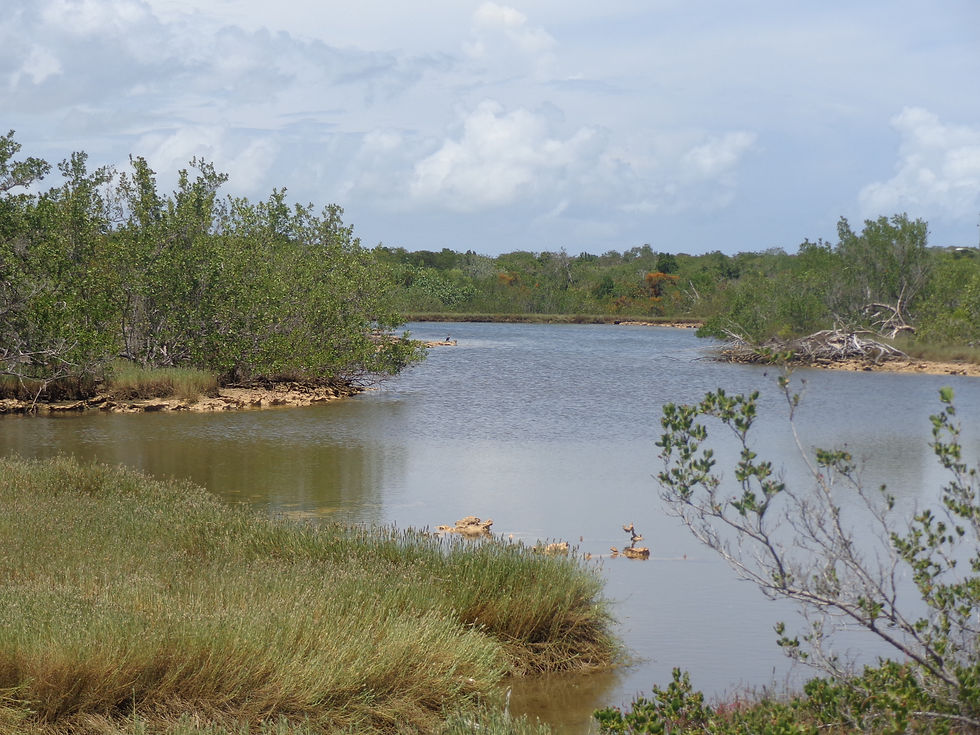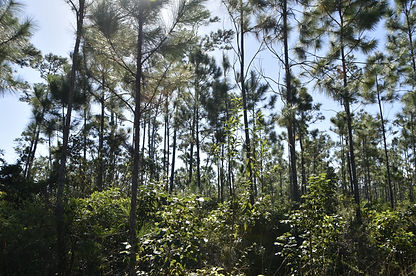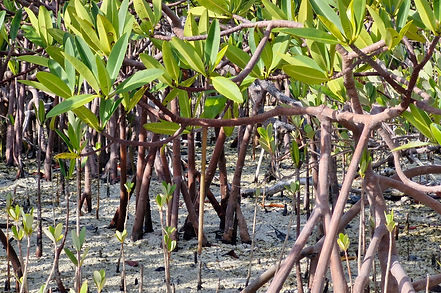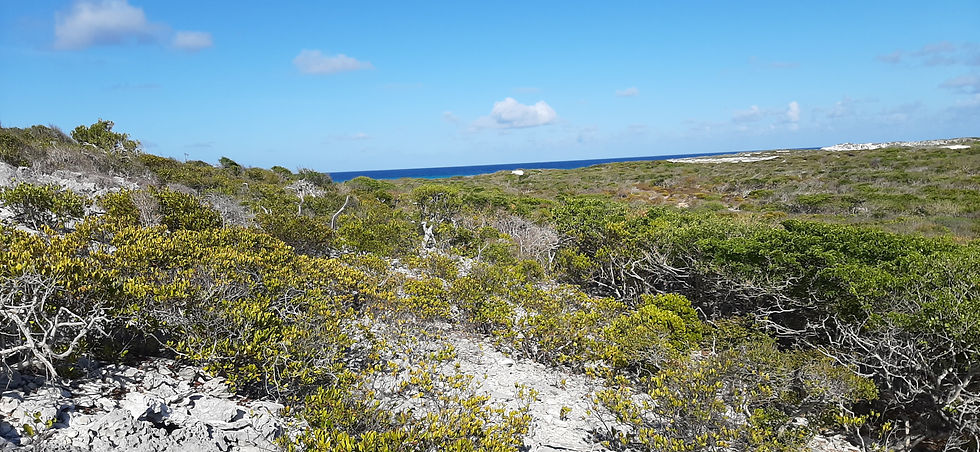

TERESTRIAL ECOSYSTEMS

A forest is fundamentally defined as an expanse of land dominated by trees. The United Nations Framework Convention on Climate Change (UNFCCC) stipulates that a forest must cover a minimum area of 0.05-1 hectare (0.01-2.47 acres), of which 10-30% is covered by tree canopy, and possess a minimum height of 2-5 meters ( 6.5-16.4 ft).
Globally, forests extend over nearly 30% of the Earth's land surface, approximately 42 million square kilometers, storing 45% of terrestrial carbon and contributing to almost 50% of the net primary production of terrestrial systems.
The West Indies possess more than 13,000 plant species, with 8,000 being endemic to the archipelago. Among these, approximately 180 seed-producing genera are exclusive to the region, primarily concentrated in the Greater Antilles. These plants inhabit various plant communities throughout the region, including Pinelands, Tropical Dry (Coppice) Forest, wetlands, and others.

Pine Woodland
Mangrove Forests





